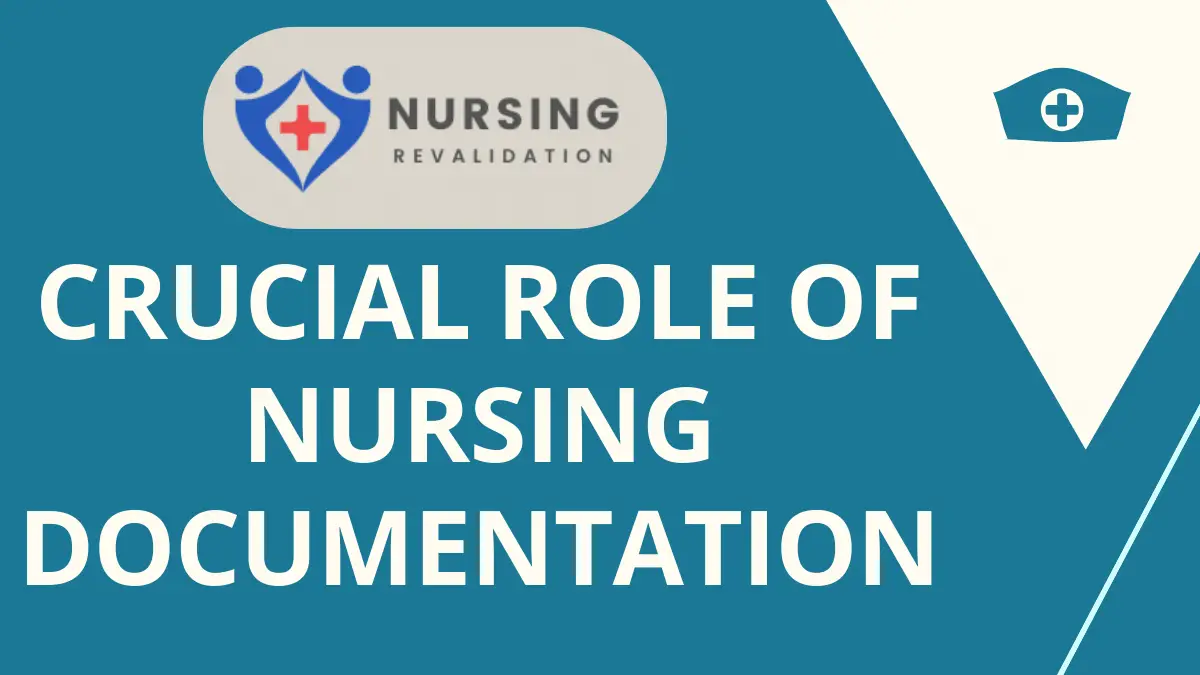In the dynamic landscape of healthcare, nursing documentation stands as a cornerstone of efficient patient care. Every notation, every detail meticulously recorded serves as a roadmap for healthcare professionals, guiding them through the patient’s journey. In this comprehensive guide, we delve into the vital importance of nursing documentation and explore best practices that ensure its efficacy.
Understanding the Significance
Nursing Documentation: A Lifeline in Healthcare
Nursing documentation serves as a vital communication tool among healthcare providers. It encapsulates a patient’s entire medical history, treatment plans, and responses to interventions. From vital signs to medication administration records, each piece of information holds immense significance in ensuring continuity of care.
Enhancing Patient Safety and Quality of Care
Accurate and comprehensive nursing documentation directly correlates with patient safety and the quality of care delivered. It minimizes the margin for errors, facilitates timely interventions, and mitigates potential risks. Moreover, it empowers healthcare providers to make well-informed decisions, ultimately leading to better patient outcomes.
Legal and Ethical Imperatives
Beyond its clinical implications, nursing documentation holds considerable legal and ethical weight. It serves as a legal record of the care provided, offering protection to both patients and healthcare providers in case of disputes or litigations. Ethically, it upholds the principles of accountability, transparency, and respect for patient autonomy.
Data Insights: The Impact of Nursing Documentation
| Metric | Importance of Documentation |
|---|---|
| Patient Safety | 98% of adverse events in healthcare are due to communication failures, highlighting the critical role of nursing documentation. |
| Legal Compliance | Hospitals with comprehensive nursing documentation protocols exhibit a 30% reduction in malpractice claims. |
| Quality of Care | Facilities with robust documentation practices report a 25% increase in patient satisfaction scores. |
| Healthcare Efficiency | Efficient nursing documentation reduces administrative burden, allowing nurses to dedicate more time to direct patient care, resulting in a 20% improvement in workflow efficiency. |
Best Practices in Nursing Documentation
1. Clarity and Precision
Every entry in nursing documentation must be clear, concise, and free from ambiguity. Utilizing standardized terminology and abbreviations enhances clarity and ensures uniformity across healthcare settings. Additionally, entries should be time-stamped, providing a chronological narrative of the patient’s progress.
2. Timeliness and Regularity
Timely documentation is paramount in capturing real-time patient data and facilitating prompt interventions. Nurses should strive to document assessments, interventions, and outcomes promptly, adhering to institutional protocols and regulatory requirements. Regular audits and quality checks can help reinforce this practice.
3. Objectivity and Integrity
Nursing documentation should maintain an objective stance, devoid of personal biases or opinions. It should accurately reflect the patient’s condition, response to treatment, and any deviations from the expected outcomes. Integrity in documentation builds trust among healthcare professionals and ensures continuity of care.
4. Comprehensive Assessment and Planning
Thorough assessment lays the foundation for effective nursing care. Documenting comprehensive assessments, including physical, psychological, and socio-economic factors, enables holistic care planning. Nurses should prioritize systematic data collection and utilize standardized assessment tools where applicable.
5. Interdisciplinary Collaboration
Effective nursing documentation transcends individual practice and fosters interdisciplinary collaboration. Sharing relevant information with other healthcare team members promotes continuity of care and prevents fragmentation. Electronic health records (EHRs) play a pivotal role in facilitating seamless communication among providers.
Conclusion
Nursing documentation is not merely a routine task but a fundamental aspect of patient care delivery. By adhering to best practices and embracing the digital advancements in healthcare technology, nurses can elevate the standard of documentation, ultimately enhancing patient safety, quality of care, and overall healthcare outcomes. Let us recognize the pivotal role of nursing documentation and strive for excellence in every notation, ensuring the holistic well-being of those under our care.

